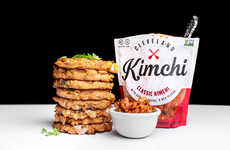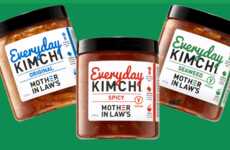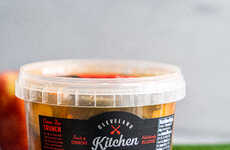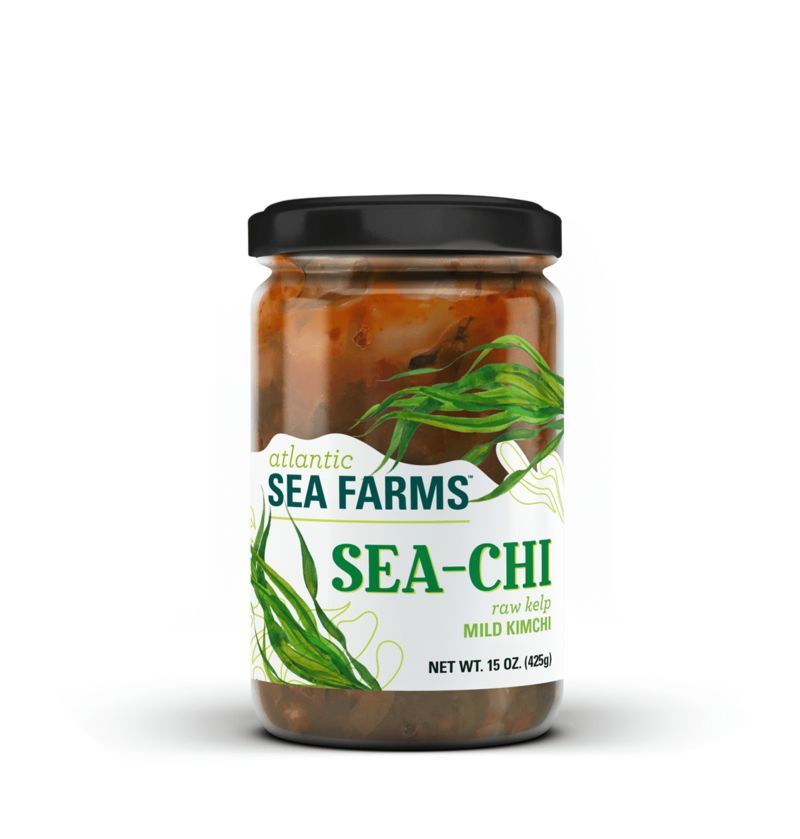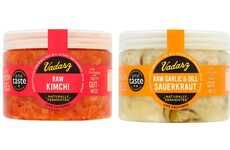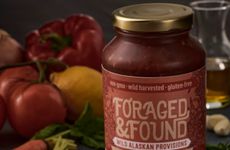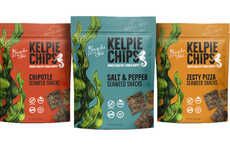
Sea-Chi by Atlantic Sea Farms is Made with Sustainably Grown Seaweed
Laura McQuarrie — September 3, 2019 — Lifestyle
References: atlanticseafarms & newhope
While people are used to seeing kimchi jars that are filled with cabbage and fermented vegetables, Atlantic Sea Farms is putting a unique twist on this staple Korean food with sustainably grown seaweed. The first ingredient in the brand's Sea-Chi is raw kelp, followed by napa cabbage and other popular vegetables and seasonings like radish, garlic, fish sauce, scallions and red pepper powder. The hand-crafted Sea-Chi is said to have a taste that's piquant, thanks to the use of perfectly balanced spices.
Products from Atlantic Sea Farms are packaged in glass jars and shipped in recycled post-consumer PET that's recyclable.
Atlantic Sea Farms also makes other inventive edible seaweed products like Seaweed Salad and Sea-Beet Kraut. The brand will be participating as a semifinalist the upcoming Expo East Pitch Slam.
Products from Atlantic Sea Farms are packaged in glass jars and shipped in recycled post-consumer PET that's recyclable.
Atlantic Sea Farms also makes other inventive edible seaweed products like Seaweed Salad and Sea-Beet Kraut. The brand will be participating as a semifinalist the upcoming Expo East Pitch Slam.
Trend Themes
1. Seaweed-based Fermented Foods - There is an opportunity to create a market for seaweed-based fermented foods, given the demand for healthier and more sustainable food options.
2. Sustainable Packaging for Food Products - The use of post-consumer recycled PET in packaging is a trend that can be adopted by other food businesses to reduce waste and increase sustainability.
3. Alternative Ingredients for Traditional Foods - There is potential for food businesses to experiment with alternative ingredients like seaweed to create new, unique flavors and healthier food options for consumers.
Industry Implications
1. Food and Beverage - The food and beverage industry can capitalize on the growing demand for healthier, sustainable food options by incorporating seaweed-based ingredients into their products.
2. Packaging and Recycling - Companies that specialize in packaging and recycling can help food businesses adopt sustainable packaging practices like using recycled post-consumer PET.
3. Agriculture and Farming - There is an opportunity for farmers and agricultural businesses to explore the production of seaweed as a sustainable and profitable crop for use in the food industry.
1.3
Score
Popularity
Activity
Freshness



